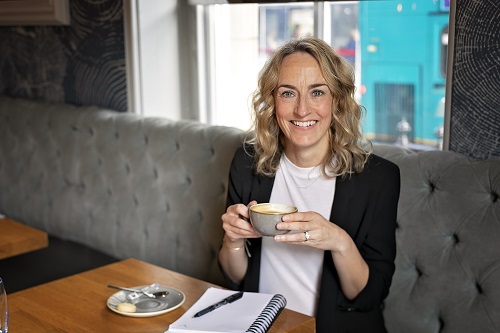
Post by Sharon Bonfield, Commercial Research Specialist, St James’s Place.
Buying a home is a regular topic of conversation with my daughter and her friends and female colleagues at work. And many of them talk about how it is out of reach, lamenting the possibility of renting long term.
There are no doubt obstacles to overcome but owning a property need not just be a pipe dream for women.
Boris Johnson recently hinted at the introduction of a government-backed first-time buyer’s scheme, aimed at helping younger people on lower incomes get a foot on the property ladder. With talk of 5% deposits and fixed-rate mortgages, and a potential launch date in 2023, it would seem that now is the time to think about starting to save – or saving more – so that if it does happen, you’re well-placed to capitalise.
Do You Feel It’s Out Of Reach?
But as a woman, does that prospect fill you with unease? Do you think that owning your own home is out of reach? If so, you’re not alone. Specialist bank Aldermore’s First Time Buyer Index (2019) revealed that nine out of ten women dream of having their own place – yet 68% believe this goal is unachievable1.
Why is that? What’s preventing women from getting on the property ladder? Well, history for one.
Years Of Disenfranchisement
In the 1870s, the Married Women’s Property Act was introduced. For the first time, women could be the legal owners of any money they earned – and inherit property in their own name.
Prior to that, it would have belonged to their husband. Despite this progress, it would be a further 20-plus years before single women had the right to inherit or own property, and nearly a full century before they would start to borrow money to buy their own place. Even then, irrespective of whether she earned enough to qualify for a mortgage, a woman would have been required to have a male guarantor.
A Crisis Of Confidence
Thankfully, the mortgage lending industry has moved on since then. But today many women still do not have confidence in their ability to buy a home – or to navigate the house-buying process. The Aldermore study found that nearly two-thirds (64%) of women consider the latter difficult, compared with fewer than half (46%) of men1.
There’s a general lack of knowledge across the board when it comes to talking about mortgages and house buying. Indeed, a survey by Trussle Mortgage Brokers suggested that 40% of people didn’t know what ‘completion’ meant and 37% didn’t understand the phrase ‘mortgage term’ – while 66% admitted they didn’t have a grasp on all of the terminology in their mortgage agreement2.
The Gender Pay Gap Goes On….
For many women, the gender pay gap remains a barrier too. It stands at 8.9% when you compare male and female full-time workers. But when you take into account full- and part-time workers, the disparity jumps to 17.3%3.
With the average first home in the UK costing £231,4554, and the average first time deposit at around £46,1875, it should hardly come as a surprise, then, that a woman needs more than 12 times her annual salary to be able to buy a home in England – compared with a little over eight times for a man6.
The situation is further compounded by the fact that plenty of women continue to assume a disproportionate share of family and childcare duties. This means they often tend to work flexibly in a self-employed capacity or as freelancers, for fewer hours – and therefore earn even less.
It’s worth noting here that there are currently around 1.7 million self-employed women in the UK7, while the number of freelance worker mothers has risen by 80% in the last decade8. And many of these might simply assume, incorrectly, that they’re not eligible for a mortgage – or that the irregularity of their income might be an insurmountable barrier.
A Helping Hand From Her Majesty’s Government
Facing all these challenges, is it any wonder some women are doubtful they could ever realise their dream of owning a home? Fortunately, there are ways to make it happen – including taking advantage of government schemes designed to help you save for your first property.
When you pay money into a Lifetime ISA, for example, the government will reward you with a bonus worth 25% of what you pay in (up to a set limit each tax year).
And if you have one already, you can continue to save into a Help to Buy ISA and take advantage of government top-ups – up to a limit of £12,000. (Please note that Help to Buy ISAs are no longer available, but if you opened one before 30 November 2019, you can keep saving into your account.)
Family Support
While the Aldermore study found that women are less likely than men to take advantage of the ‘Bank of Mum and Dad’1, there are intergenerational products available for parents and grandparents wishing to give their children or grandchildren a leg up on the property ladder.
And now might be the right time to have that frank discussion about whether or how they could help you.
For example, by:
- Offsetting their savings against your mortgage – helping to lower the amount of interest you pay, reducing the deposit required, or giving you access to preferable mortgage rates.
- Using their existing savings or property as extra mortgage security – while retaining ownership of their investments and savings.
- Jointly applying for a mortgage alongside you – thereby including their income to help the mortgage become more affordable.
Terms and conditions would apply to each of these options, so advice must be sought.
Feel Confident
Buying a home should be the single biggest purchase you’ll ever make and you’ll need to feel confident you’ve gone about it in the right way. A regulated financial adviser can guide you through the available schemes, the best ways to grow a deposit, or provide access to mortgages that are best-suited to your financial situation.
The fact is, achieving what you want doesn’t have to be a pipe dream. Because it’s not always what you earn that matters most. It’s how you make the money you save work harder. And that’s where financial advice makes all the difference.
For more information, news or advice from St. James’s Place, please visit https://www.sjp.co.uk/news.
Sources
1 Aldermore, First Time Buyer Index, 2019
2 Trussle Mortgage Brokers, Trussle Mortgage Map of Knowledge, September 2019
3 ONS Gender Pay Gap in the UK: 2019
4 Halifax First Time Buyer Review, January 2020
5 Halifax First Time Buyer Review, January 2020
6 Women’s Budget Group, A Home of Her Own, Housing and Women, July 2019
7 ONS, Trends in Self-employment in the UK 2019
8 The Association of Independent Professionals and the Self-Employed (IPSE), What makes a freelancer? Understanding the rise of self-employment 2019


